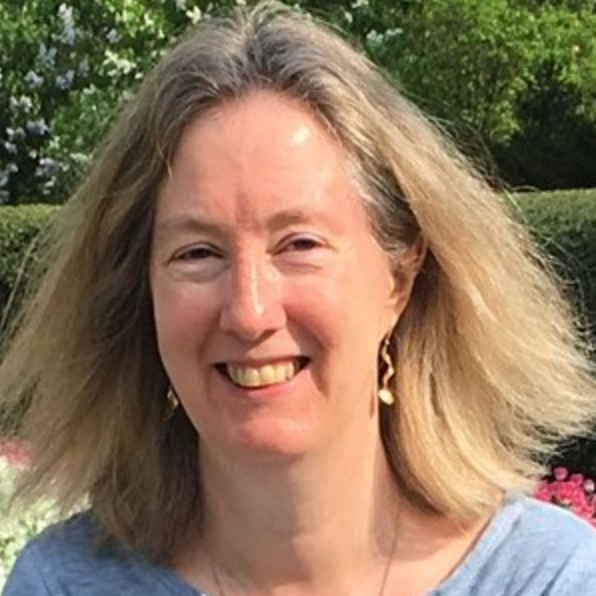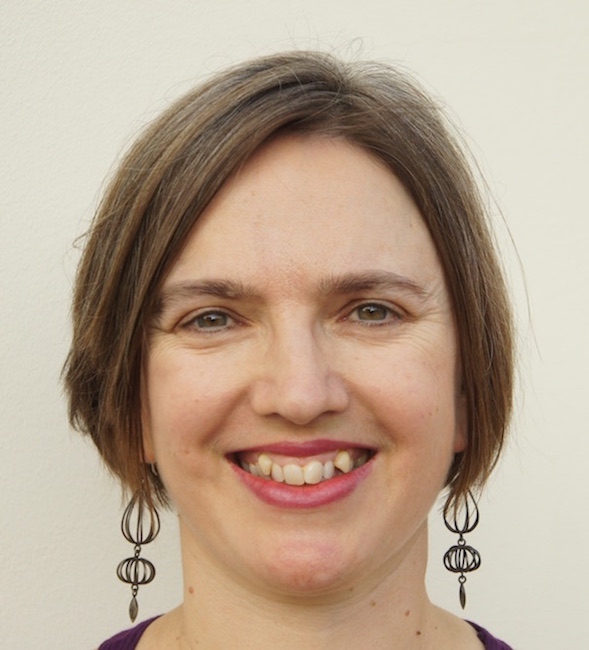2 ASU historians awarded National Endowment for the Humanities fellowships

Coor Hall photo courtesy of ASU.
Arizona State University associate professors of history Anna Holian and Laurie Manchester both recently received fellowships from the National Endowment for the Humanities (NEH). Their projects were among 213 others to be selected to receive support.
“Considering the difficulties we all faced during 2020 due to the global pandemic, it was a nice way to end a hard year,” said Manchester.
“It's amazing that both Laurie Manchester and I got the fellowship at the same time: two faculty members from the same unit. That’s very unusual,” Holian said. “(Manchester) and I have been part of a reading group for a number of years and we've read each other's draft articles, book chapters and fellowship applications. So I think the fact that we both won the fellowship speaks to the importance of collaborating and supporting each other in our work.”
The return to Russia
Manchester’s project is titled “From China to the USSR: The Return of the ‘True’ Russians” and will be the first comprehensive study of mass voluntary return to an illiberal, impoverished, historical homeland in the 20th century.
Associate professor of history Laurie Manchester.
Beginning in 1954, 100,000 Russians from pious, monarchist families voluntarily returned to the Soviet Union despite the fact that the vast majority of an earlier wave of people who returned in 1935 had been killed or arrested.
Most of these Russians were born and raised in China to parents who had fled the Bolshevik revolution or had migrated before 1917 to the city of Harbin.
“It challenges the dominant theories in migration studies that economic betterment, the desire for liberty or family reunification motivate migration,” Manchester said. “My project not only explains their decision to repatriate, it also focuses on their lives in the Soviet Union and in post-Soviet Russia. My study illuminates the encounter between Imperial Russia and the Soviet Union since repatriates were essentially representatives of the former.”
Her project began as a conference paper she presented in 2010 in St. Petersburg. In 2012, after publishing two articles based off of the conference presentation, she decided to dive into the topic more.
“I started sleuthing and found out there were scores of repatriates still alive in Russia whom I could interview,” Manchester said. “Once I started interviewing, I was hooked.”
Between 2012–2018 she worked in over 20 archives in Russia, the U.S. and Europe. She also conducted almost 100 in-depth oral interviews between 2012–2016 in seven Russian cities including in the Urals, Siberia and the Far East.
Since most of her research was completed in 2018, Manchester plans to use the time of the fellowship to finish writing her findings in a book.
“I have already published several articles tied to the project in several peer-reviewed scholarly journals,” Manchester said. “I’ve also presented papers based on it at regional, national and international conferences, and as invited lectures at universities in cities throughout the U.S., as well as in Russia, Scotland and England. I will be presenting papers based on individual chapters in 2021 at a conference at Columbia University on ‘Russians Abroad’ and at the 57th convention of the Association for Slavic, East European and Eurasian Studies to be held in New Orleans.”
Her research has led her to become a specialist in conducting oral histories and she believes it can open up possibilities for others who are exploring similar topics.
“I encourage my graduate students to try it,” Manchester said. “I know repatriates from China would have been insulted if I hadn’t sought them out. This project has also taught me that as historians we sometimes need to create archives, not only of oral histories, but to collect written material as I did.”
She has donated the sources she has collected over the years to the Hoover archive at Stanford as an effort to develop and curate an archive for future historians.
Postwar Jewish economy
Associate Professor of history Anna Holian.
Holian’s project will focus on Jewish economic life in Germany after the Holocaust and is titled “Setting Up Shop in the House of the Hangman: Jewish Economic Life in Postwar Germany."
She will explore how Jews made a living and how making a living was connected to making a home, thus offering an economic and social history of a long reintegration process.
“I am especially interested in Jewish businesses,” Holian said. “During the 1930s, the Nazis pushed Jews out of the German economy, forcing business owners to sell their businesses to ‘Aryans’ or simply shut down. The forced removal of Jews from the economy was the prelude to their deportation and murder.
“After 1945, the small number of German and Eastern European Jews who found themselves in Germany had a very difficult time rebuilding their lives and livelihoods. They mainly sought to survive by opening small businesses specializing in things like textiles, leather goods, furs and jewelry.”
Her dissertation, which eventually became her first book, “Between National Socialism and Soviet Communism: Displaced Persons in Postwar Germany,” focused on refugees in Germany after World War II. During the course of doing research for that project, she learned about a neighborhood in Munich where Polish and other Eastern European Jews opened small businesses in the first years after the war.
“That really piqued my curiosity,” Holian said. “I did not, however, plan on writing a book about Jewish economic life. I thought the marketplace would be part of a bigger project on Jewish spaces in postwar Germany. But as I dug deeper into the topic, I realized there was also a very interesting economic story there that no one had explored in depth and that in fact people had various misconceptions about the marketplace, for example, that it was mainly a site of black marketeering.”
Holian’s fellowship will be mostly used to finish writing her findings in a new book, and she hopes to organize an exhibit on the topic later on. She has collected material from 17 archives and has conducted more than 30 interviews with former business owners, their children and their employees.
This was not the first time Holian had applied for a fellowship from the NEH. She says receiving the news of her fellowship was thrilling.
“That very same morning I had realized that it was about time for me to be hearing back about my fellowship application, and I actually took a look at the statement that I had written,” Holian said. “It was not the first time I had applied for the fellowship, and I fully expected to get another rejection email. So when a very different-looking email from the NEH arrived in my inbox, I was really taken aback.”
Manchester and Holian will officially begin their fellowships in January 2022.
More Arts, humanities and education

Local traffic boxes get a colorful makeover
A team of Arizona State University students recently helped transform bland, beige traffic boxes in Chandler into colorful works…

2 ASU professors, alumnus named 2025 Guggenheim Fellows
Two Arizona State University professors and a university alumnus have been named 2025 Guggenheim Fellows.Regents Professor Sir…

No argument: ASU-led project improves high school students' writing skills
Students in the freshman English class at Phoenix Trevor G. Browne High School often pop the question to teacher Rocio Rivas.No,…



